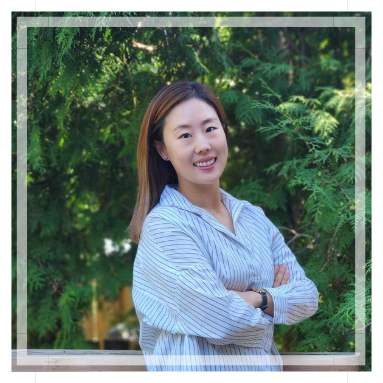
Eating Disorder Counsellor
Bayridge Counselling Centre, Counselling Centre
Individual, Couples, and Family Counselling
565 Sanatorium Rd., Suite #204A, Hamilton, Ontario L9C 7N4 | 905-297-5317
Eating disorders such as bulimia, anorexia, binge eating, and compulsive eating as well preoccupation with weight and shape are quite common in our culture and can be devastating and complex. Often there are severe consequences in terms of productivity, relationships and health. The good news is that it is possible to find our way out of an eating disorder. Whether through individual, family or group therapy, counsellors can assist us in changing our perceptions and behaviours and develop healthy self-esteem, communication, coping skills and emotional well being. (If we could have done it on our own... we would have by now.)

Eating Disorder Counselor
Junie Baek, RP
Registered Psychotherapist
Available for Online Therapy
While I do not offer support for eating disorders, at Psychotherapy Collective, we have other therapists who are well positioned to support you. Eating disorders are not really about food. They involve complex emotional issues that have significant impact on ones physical, emotional and social health. If you are preoccupied with your weight, focused on body image, size, or shape, compelled to perform specific rituals around food, obsessive about food, or deem foods as “safe” or “unsafe” to eat you may be engaging in disordered eating. Schedule a free 15-minute consultation with a member of our team today https://www.psychotherapycollective.ca/our-team

Eating Disorder Counselor
Shanna Budzinsky, RP
Registered Psychotherapist
Available for Online Therapy
While I do not offer support for eating disorders, at Psychotherapy Collective, we have other therapists who are well positioned to support you. Eating disorders are not really about food. They involve complex emotional issues that have significant impact on ones physical, emotional and social health. If you are preoccupied with your weight, focused on body image, size, or shape, compelled to perform specific rituals around food, obsessive about food, or deem foods as “safe” or “unsafe” to eat you may be engaging in disordered eating. Schedule a free 15-minute consultation with a member of our team today https://www.psychotherapycollective.ca/our-team

Eating Disorder Counselor
Kevin Fleming, Ph.D.
Coach/Change Agent/Consultant
At Home or Private Discreet Intensives
While most eating disorder issues are treated by cognitive behavioral methodologies or specialized outpatient/inpatient programs, Grey Matters International and the work of Kevin J. Fleming, PhD provide relief first and foremost for the brain of one suffering from an eating disorder----without giving them medication. We believe that the neural circuitries responsible for the compulsive behaviors with eating are not necessarily only a neurotransmitter issue but of overused neural networks that affect the harmonization, balance, and decisions of the whole brain. Contact kevin@kevinflemingphd.com or 877-606-6161 to learn more about this safe and effective alternative.

Eating Disorder Counselor
Monika Georgieva, RP
Registered Psychotherapist
Available for Online Therapy
While I do not offer support for eating disorders, at Psychotherapy Collective, we have other therapists who are well positioned to support you. Eating disorders are not really about food. They involve complex emotional issues that have significant impact on ones physical, emotional and social health. If you are preoccupied with your weight, focused on body image, size, or shape, compelled to perform specific rituals around food, obsessive about food, or deem foods as “safe” or “unsafe” to eat you may be engaging in disordered eating. Schedule a free 15-minute consultation with a member of our team today https://www.psychotherapycollective.ca/our-team

Eating Disorder Counselor
Pamela Li, RP
Registered Psychotherapist
Available for Online Therapy
Eating disorder recovery is a transformative journey towards a healthier relationship with food and yourself. Through a supportive and non-judgmental therapeutic process, we will work together to develop healthier habits, improve body image, explore emotional triggers, and restore your overall well-being. If you are on the path to eating disorders recovery, reach out today for a free consultation.
You Have Found Honest and Real Therapy for Food Issues in Dundas, ON.
Are you ready to start on a new path? Thank you for visiting our Ontario search of licensed therapists in Dundas who specialize and have experience treating food issues such as anorexia, over eating, food aversions, orthorexia nervosa and bulimia. Food issues affect anyone, both children and adults and can impede our relationships and daily life. Counselling for help with food and eating is a vital component of healthy recovery and restoration. Find the right counselor for eating and food issues in Dundas right now and begin your new life.
Dundas is located in Ontario, Canada. The population of Dundas is 24,285 people. Dundas therapists serve postal code: L9H.
